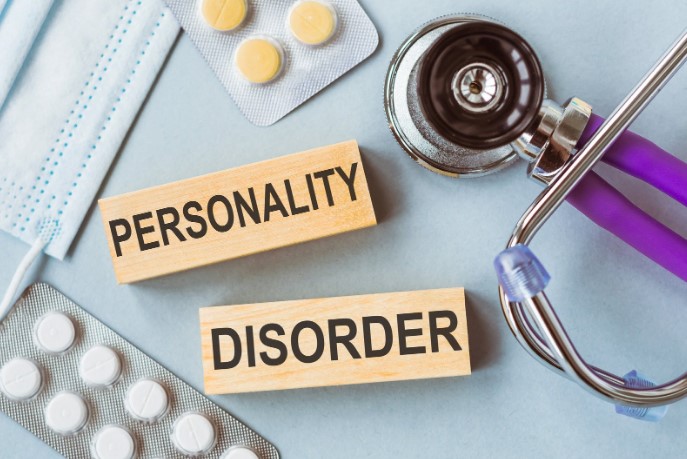
Why Bipolar Symptoms in Women Are Often Misdiagnosed as Something Else
Women in Florida seeking clarity about their mental health often face a challenging journey. While mood swings, irritability, or phases of extreme energy alternating with deep sadness may signal a treatable mental health condition, these patterns can be missed. At URP Behavioral Health signs of bipolar disorder in women are discussed in depth, noting that these symptoms may resemble other conditions. Healthcare providers may attribute them to hormonal changes, stress, or depression, resulting in delays in accurate diagnosis and care. Misdiagnosis can exacerbate suffering and disrupt daily life, highlighting that specialized awareness and expertise may be helpful when evaluating possible bipolar symptoms among women. Understanding why this confusion occurs may help people consider support and treatment options in Florida; individual needs vary.
Unique Challenges in Recognizing Bipolar Disorder in Women
Identifying bipolar disorder in women presents unique hurdles that often stem from both biological and sociocultural factors. Some studies suggest women may experience different mood patterns than men, including a higher reported rate of rapid cycling—shifts between depression and mania that happen several times a year or even more frequently. These fluctuations may be misattributed to hormonal cycles, such as premenstrual syndrome (PMS), premenstrual dysphoric disorder (PMDD), or the emotional adjustments associated with pregnancy and menopause.
Diagnostic complexity increases when co-occurring conditions, such as anxiety disorders, eating disorders, or substance use, overshadow core bipolar symptoms. Clinicians may focus on these more prominent symptoms and may not fully explore possible underlying mood instability or periods of elevated energy and impulsive behaviors that define bipolar disorder. Societal expectations also play a role: women in Florida, as in other regions, are often expected to manage emotional labor within families and communities. When they struggle to cope, their distress may be minimized or explained away as circumstantial rather than indicative of a serious mood disorder.
Furthermore, women are likelier to seek help during depressive episodes, which often leads to a diagnosis of major depressive disorder without careful screening for a history of manic or hypomanic phases. Without recognition of these high-energy states, tthe bipolar features may remain unrecognized. This misattribution may be associated with suboptimal care and distress, and in some cases an elevated risk of self-harm if the bipolar aspect is not identified and treated.An expert, gender-sensitive approach to evaluation may help clarify potential sources of symptoms and support individualized care; outcomes vary in Florida’s mental health landscape.
Overlapping Symptoms and the Impact on Proper Treatment in Florida
Misdiagnosis of bipolar symptoms in women is often fueled by the overlap between bipolar disorder and other mental health conditions prevalent in women. Depression, anxiety, borderline personality disorder, and even attention deficit hyperactivity disorder (ADHD) share several symptom domains with bipolar disorder, which often complicates clear identification. Women may present with persistent irritability, disrupted sleep, impulsivity, or dramatic mood shifts—all symptoms that easily fit more than one diagnosis.
Healthcare providers in Florida, dealing with high patient volumes and time constraints, may rely on snapshot assessments rather than longitudinal histories. Consequently, a woman presenting during a depressive episode may only have that segment of her experience considered, and the interplay between depression and mania goes unnoticed. For those who present with anxiety, stress, or somatic complaints, the possibility of a mood disorder may not even be on the clinician's radar.
The risk of diagnostic overshadowing is especially high when women have physical health issues—thyroid imbalances, perimenopausal symptoms, or chronic pain conditions—whose symptoms also intersect with the emotional volatility of bipolar disorder. This creates a fertile ground for error, with some medication choices and therapeutic approaches may not be optimal for everyone and, in some cases, could be associated with symptom worsening. Antidepressant monotherapy, commonly prescribed for depression, has been reported in some cases to be associated with mood elevation or mania in people with undiagnosed bipolar disorder; responses are individual, leading to further confusion and distress.

Why a Florida-Focused Approach is Critical
Florida’s diverse population, varying access to care, and distinct stressors—such as hurricane seasons, tourism-driven economies, and unique demographic pressures—may benefit from context-specific strategies for mental health support. Culturally competent providers must not only recognize the nuanced presentations of bipolar disorder in women but also understand local influences on mental health. Early recognition and intervention may help reduce symptom escalation and psychosocial impact for some individuals.
URP Behavioral Health provides general information about mental health treatment Florida connecting with professionals who work with bipolar presentations; availability and approaches vary from other conditions and address the particular needs of women in the region. PPersonalized care based on thorough assessment may be associated with improved experiences for some; results differ.
Common Conditions Mistaken for Bipolar Disorder: What Women Should Know
Women often find their symptoms mistaken for more common conditions, which leads to prolonged struggles before receiving the right diagnosis. Several mental and physical health issues can closely resemble bipolar disorder, making the path to effective care more complicated. At URP Behavioral Health https://urpbehavioralhealth.com/blog/bipolar-symptoms-in-women/ gives insight into this frequent misdiagnosis, intended for general information; it is not medical advice. Some of the most commonly confused conditions include:
- Major depressive disorder: Symptoms of hopelessness, fatigue, and withdrawal often lead to a depression diagnosis if manic symptoms are not disclosed or probed for.
- Anxiety disorders: Chronic worry, panic attacks, and restlessness can mask the underlying cycle of mood elevation and depression typical in bipolar disorder.
- Borderline personality disorder: Emotional instability, impulsiveness, and intense interpersonal relationships may be wrongly labeled as a personality disorder rather than bipolar mood swings.
- Premenstrual dysphoric disorder (PMDD): Severe mood changes related to the menstrual cycle can overlap with core features of bipolar disorder, especially in reproductive-age women.
- Thyroid disorders: Hormonal imbalances affecting mood and energy levels can be mistaken for the mood disturbances seen in bipolar disorder.
- Substance use disorders: Substance-induced mood swings may obscure the primary diagnosis of a bipolar condition.
Awareness of these overlapping symptoms may help women consider discussing comprehensive evaluations with mental health professionals, if they choose.
The Importance of Early and Accurate Diagnosis in Women’s Mental Health
An early, accurate diagnosis may be associated with better long-term well-being for some individuals. Some research suggests targeted treatment may be linked to lower rates of severe episodes or hospitalization for some people; individual responses vary. Women who spend years with a misdiagnosis frequently report worsening symptoms, damaged relationships, and reduced quality of life. In Florida, where access to specialized care can vary, awareness campaigns and ongoing education for clinicians may be valuable. Specialized assessment protocols may help bridge these diagnostic gaps. Family involvement, comprehensive history-taking, and validated screening tools may contribute to earlier recognition for some; contexts differ.

Advancing Awareness and Access to Specialized Care for Women in Florida
Achieving progress in the accurate diagnosis and treatment of bipolar disorder among women requires a collective commitment to education, advocacy, and clinical excellence within Florida’s mental health landscape. Breaking the cycle of misdiagnosis starts with providers who truly listen, question, and understand the diverse presentations in their female patients. As the healthcare community becomes more attuned to these challenges, women may be better positioned to receive care that aligns with their needs; this information is general and not a substitute for professional advice.




